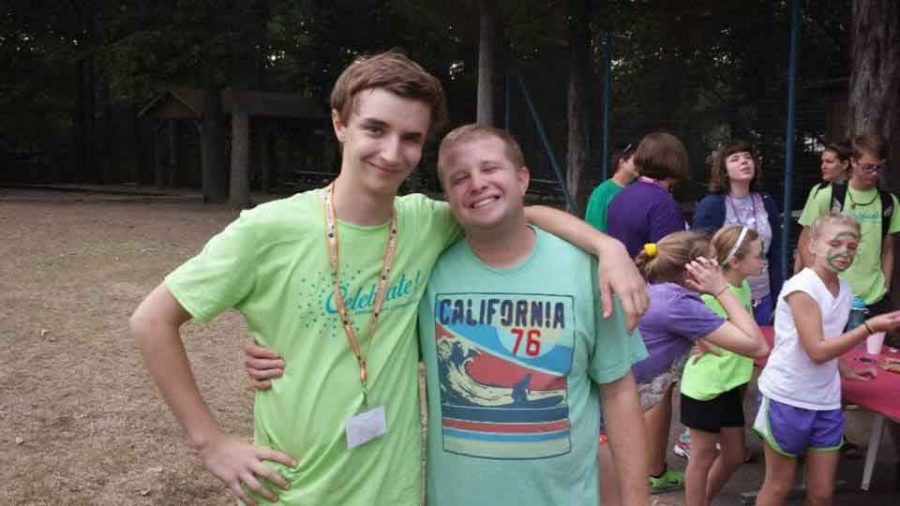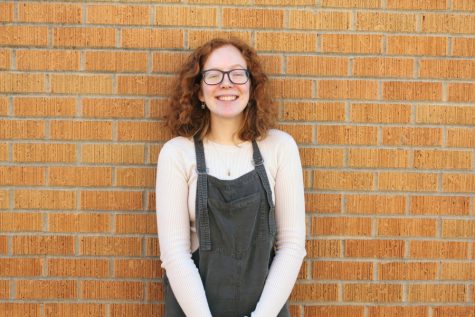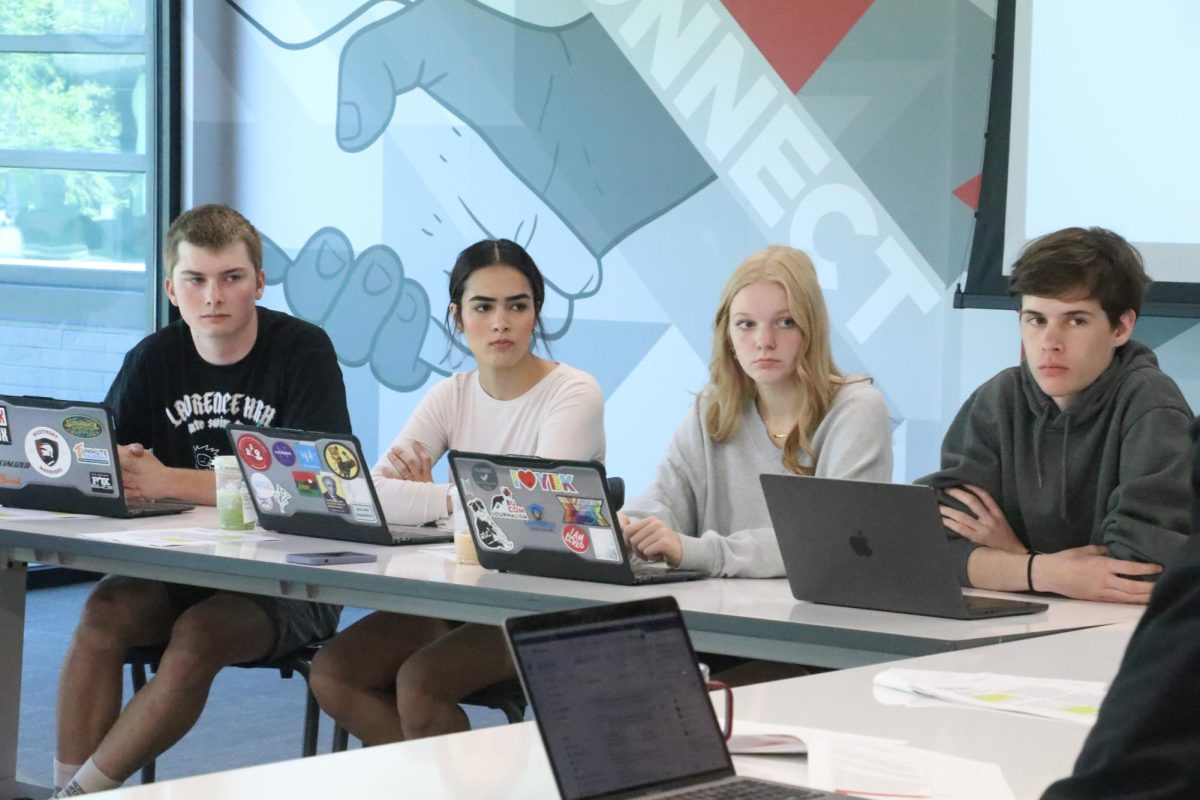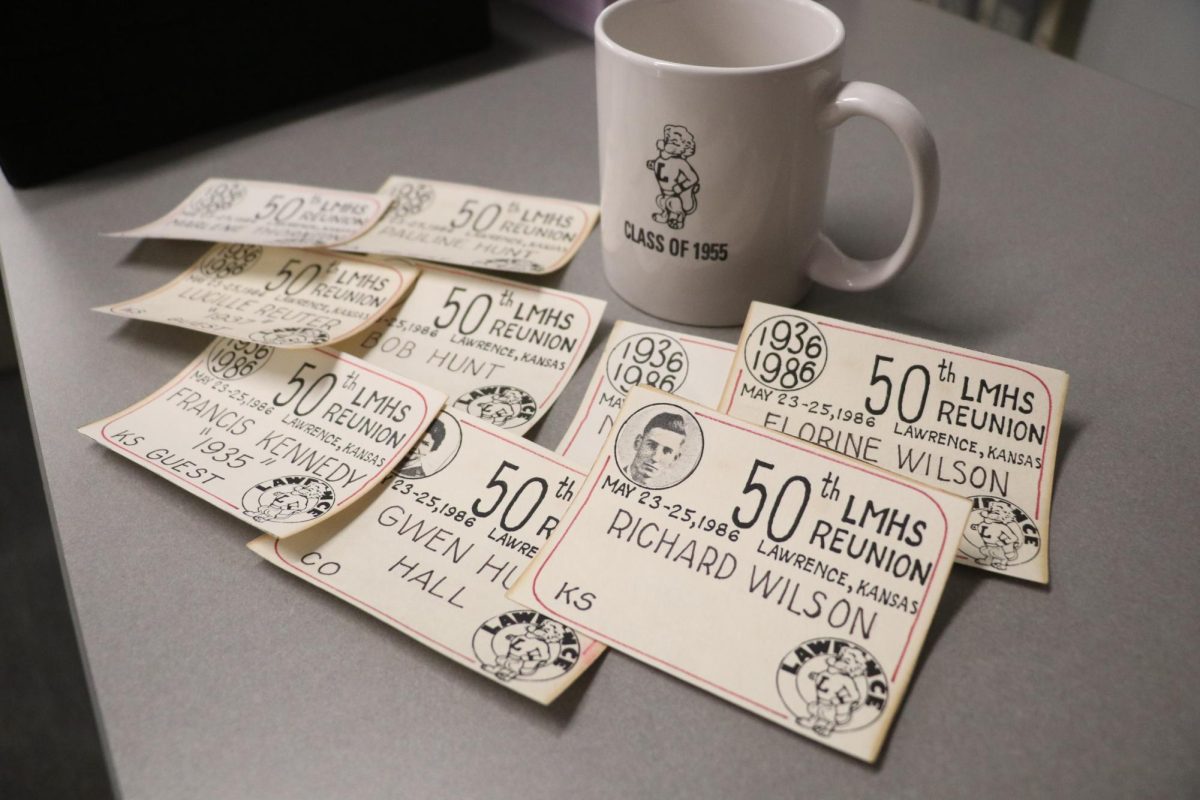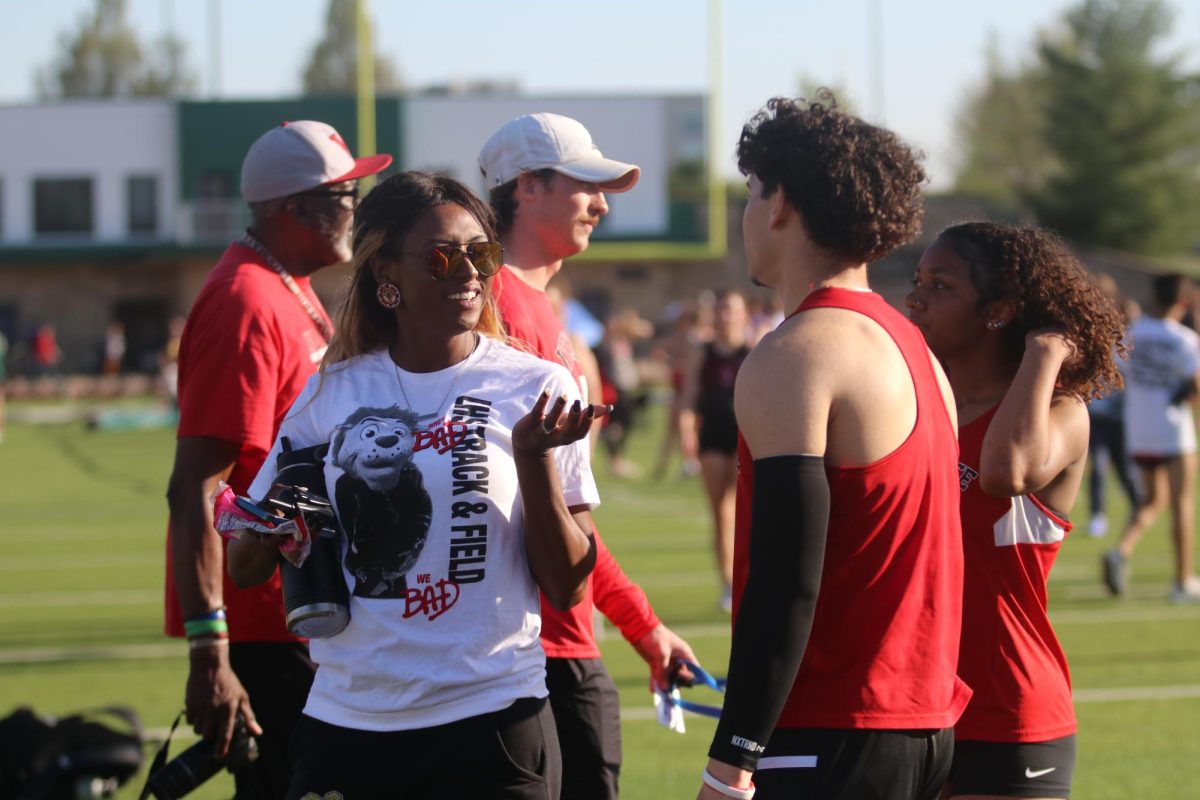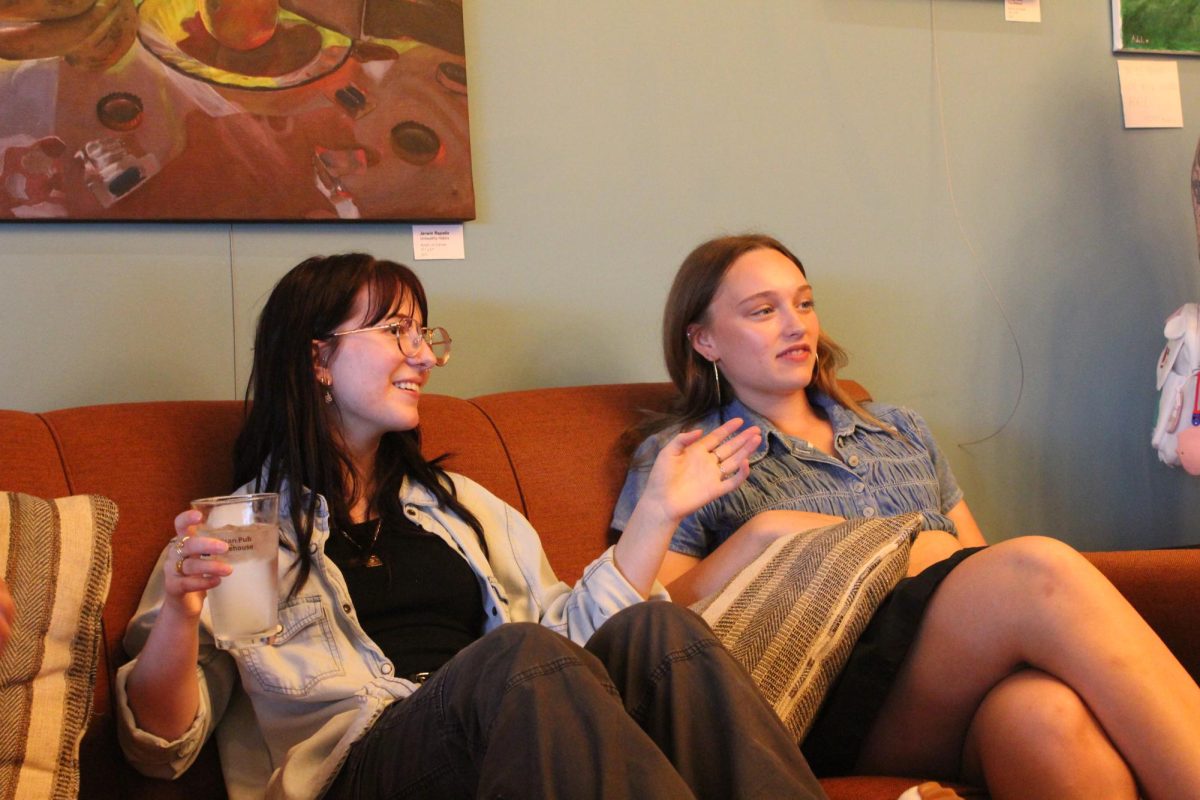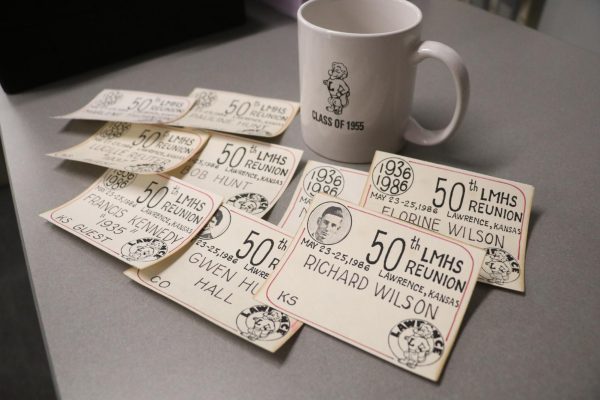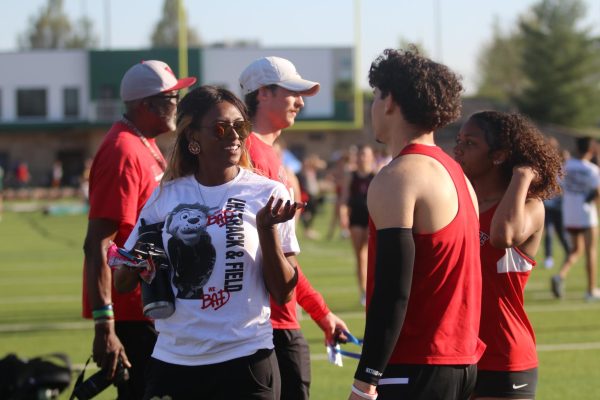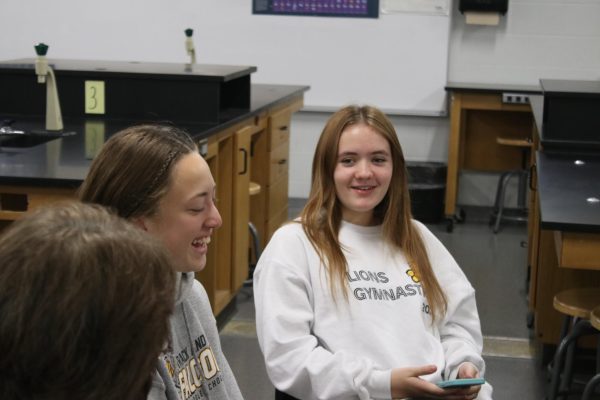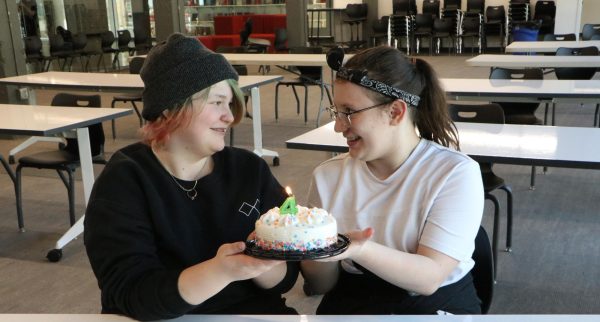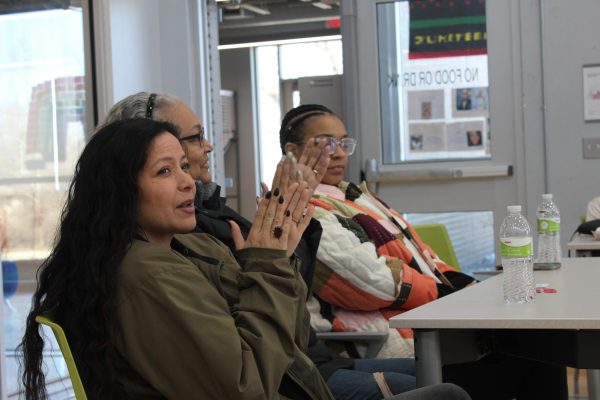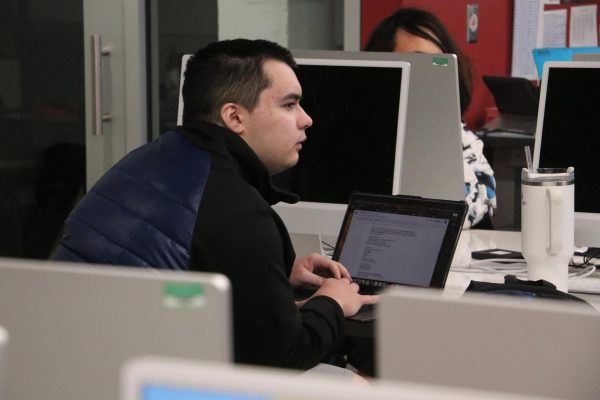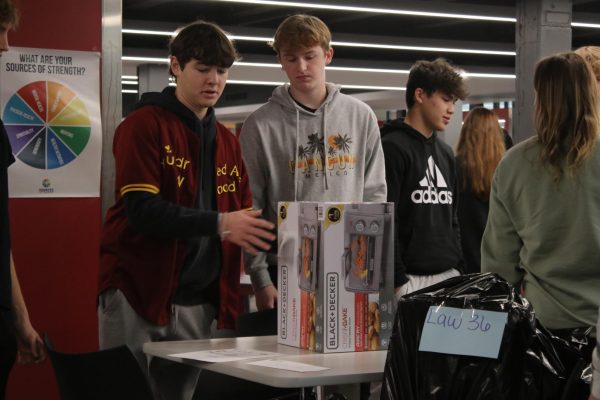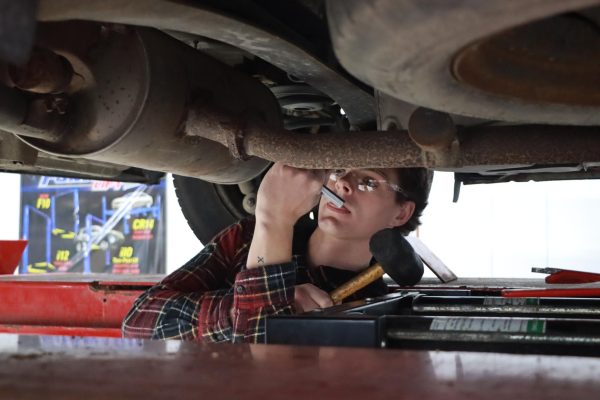Camp Barnabas brings students together
Christian summer camp allows students to connect with others they might not meet otherwise
Senior Jesse Belt (left) poses with his first camper Gray Garett at Camp Barnabas. Photo courtesy of Jesse Belt
April 28, 2016
When campers come to Camp Barnabas, they automatically know it’s no ordinary summer camp.
It could be because, as they arrive, their names are announced over loud speakers, or because, right when they get there, they’ve already met their best friend for the week (also know as a CIA). Whatever the reason, campers go to Barnabas to have an experience they’ll never forget.
Camp Barnabas is a Christian summer camp designed for children and adults who have special needs. Volunteers and participants sign up for week-long sessions. This year, the camp will run from June 5 to Aug. 12.
“They [the campers] get to do typical summer camp things,” said science teacher Timothy Kuhlman, who has volunteered at the camp five times since he was in high school. “Things that kids like them probably grow up thinking or hearing that they’ll never be able to do, like get in a canoe and paddle around on a lake, or get on horseback and ride, or go through an obstacle course. Things like that.”
Campers and volunteers come from all across the country to attend sessions on any three of the camp’s Missouri campuses. While there, campers are assigned to one volunteer, or CIA, and their cabin for the week. Volunteers and campers are assigned on a one-to-one ratio, and sometimes a camper will have more than one CIA if needed.
“There’s a lot of activities there…like archery, and we have parties, and we like to do stuff together as a cabin,” said freshman Nolan Smith, who has attended the camp.
Sessions, as well as being on different campuses, are categorized by age group and disability type.
“I went to challenge week twice, which those are campers that have cerebral palsy and spina bifida, sorts of things that usually they’re almost all wheelchair bound,” Kuhlman said. “I also went to, I forget what they call it, but they all had some sort of visual impairment. A lot of these campers had multiple difficulties, so my camper that week was entirely blind and autistic….Sometimes they get to pick whatever week they feel like they’ll fit in the best.”
Kuhlman said part of the experience for the campers comes from getting to spend time with people who have had some of the same challenges as they have, and many keep in touch with friends they make at camp after they leave for the summer.
“They get to go to a camp where everyone has been through the same sorts of things that they’ve done, and what their life has been like,” he said. “I know some of the campers that this is the one thing they look forward to all year.”
The role volunteers play differ between each pair of CIA and camper, but their main purpose is to be a friend to the participant.
“The primary duty the volunteers serve is being a best friend for the campers and giving them unconditional love,” senior Jesse Belt, who was a CIA last summer, said. “That manifests itself in many ways, from doing whatever the camper wants all the time — even if that’s playing on the swings for hours straight — to helping with the activities of daily life, which are things like eating, getting dressed and showering. Ultimately, volunteers serve to ensure the campers are comfortable, safe and having as much fun as possible.”
Because of the physical and cognitive disabilities many of the campers face, they are often hindered from participating in recreational activities on a regular basis. But at Barnabas, Belt said the CIAs do their best to let campers take part in things that other teens often take for granted.
“For a week they come to camp where they have their very own volunteer who will do everything they possibly can to make sure the camper has the best week of their life,” he said. “They get to do a lot of fun things they would never get to do at home.”
While being a volunteer can be exhausting, Kuhlman said journey they take at camp is a rewarding process for both CIAs and campers.
“I’ve seen some of the most cheerful people I’ve ever met at this camp,” he said. “…They just love being there.”
Barnabas helps to nurture relationships outside of camp as well.
“It makes so many great memories for everyone involved,” Belt said. “Whenever you mention camp to one of the campers, their face will just light up with the biggest smile, and that’s really cool to see. Also it’s pretty common for campers to stay in touch with their volunteer, forming some really cool, long-lasting friendships.”
Summer camps are about having fun, but somber moments aren’t uncommon at Barnabas. Because many participants have terminal illnesses, there’s always the chance of one of them not returning the next summer.
“I think probably my biggest memory of the camp…is that they do a ‘cross walk’ at the end of the week,” Kuhlman said. “They have this cross at camp where they kind of hold chapel every once in awhile, and on it they have the name of every camper that’s ever come that’s passed away, because a lot of them have very challenging health issues….There’s quite a few that are on that cross, and it gets a little more full every year, but they pass the cross through camp and we all just kind of take turns praying over it.”
The camp is also widely known for the life-changing experiences it offers participants. Some are affected by the Christian components of the camp.
“We talk about God, or worshiping Him, or singing about Him and praising Him about His son who died on the cross for us, for our…sin,” senior camper Kiera Snodgrass said. “That slavery of sin goes away because He wants us to be free.”
The camp can be influential for the volunteers as well.
“I was going through a lot of really bad personal stuff when I left for my first week of camp, and spending an entire week living entirely for someone else was such a healing experience,” Belt said. “Most of us don’t get the chance to do that, to have nothing but love for another person, and it definitely has been life changing.”
No matter what participants get out of it, though, they always have a good time.
“My favorite part of camp is really having fun,” Smith said. “I love swimming, and I love the parties and making new friends.”



